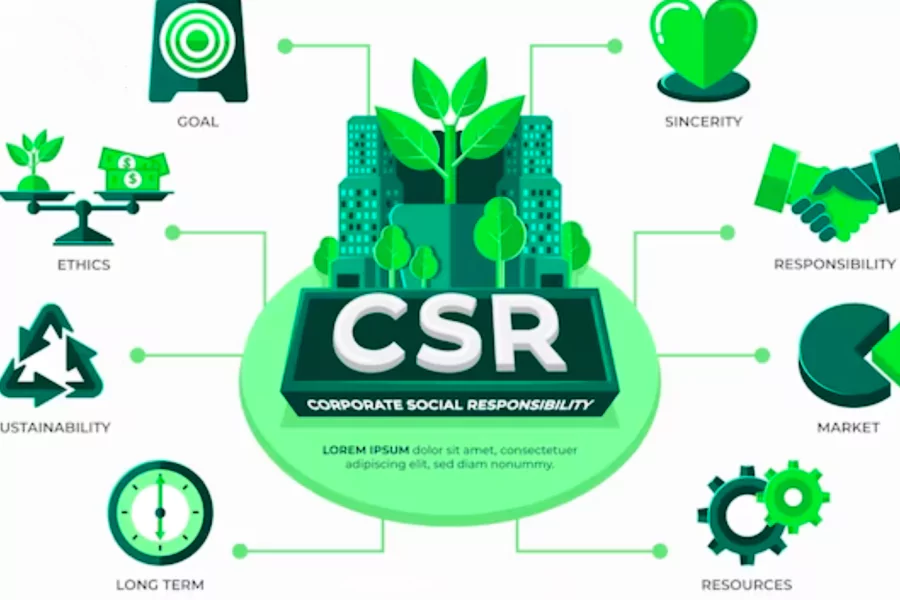![]() 13 Dec 2024
13 Dec 2024

India was the first country to make Corporate Social Responsibility (CSR) mandatory under the Companies Act, 2013.

CSR & Sustainable Development Goals (SDGs)
|
|---|
| Category | Activities |
| Eradicating Poverty & Hunger | * Promoting healthcare (preventive & sanitation) * Contributing to Swachh Bharat Kosh for sanitation * Providing safe drinking water |
| Education & Skill Development | * Supporting education (including special education) * Enhancing vocational skills for children, women, elderly, and differently-abled * Funding livelihood enhancement projects |
| Gender Equality & Social Equity | * Promoting gender equality and women’s empowerment * Building homes & hostels for women & orphans * Setting up old age homes & daycare centers * Reducing inequalities faced by disadvantaged groups |
| Environmental Sustainability | * Protecting environment & ecological balance * Conserving flora & fauna, promoting animal welfare * Practicing agroforestry & natural resource conservation * Maintaining air, water, and soil quality * Contributing to river Ganga rejuvenation |
| Culture & Heritage | * Protecting national heritage, art, and culture * Restoring historical sites and artworks * Setting up public libraries * Promoting traditional arts and handicrafts |
| Supporting Veterans & Families | * Providing benefits to armed forces veterans, war widows, and their dependents * Supporting Central Armed Police Forces (CAPF) and Central Para Military Forces (CPMF) veterans and their dependents |
| Sports Development | * Training programs for rural sports, national sports, Paralympic sports, and Olympic sports |
| Social Welfare Contributions | * Contributing to government funds for socio-economic development, relief, and welfare of disadvantaged groups (Scheduled Castes, Scheduled Tribes, Other Backward Classes, minorities, and women) |
| Science & Technology | * Supporting government-funded incubators or research projects in science, technology, engineering, and medicine (STEM) |
| Research & Development | * Contributing to public-funded universities, IITs, national laboratories, and autonomous bodies conducting research in STEM for Sustainable Development Goals (SDGs) |
| Rural & Slum Development | * Implementing rural development projects * Supporting slum area development initiatives |
| Disaster Management | * Participating in disaster relief, rehabilitation, and reconstruction activities |
Education (33%-40%)
|
Health Care (20%-30%)
|
Environmental Sustainability (5%-10%)
|
Agriculture (10%-15%)
|
<div class="new-fform">
</div>